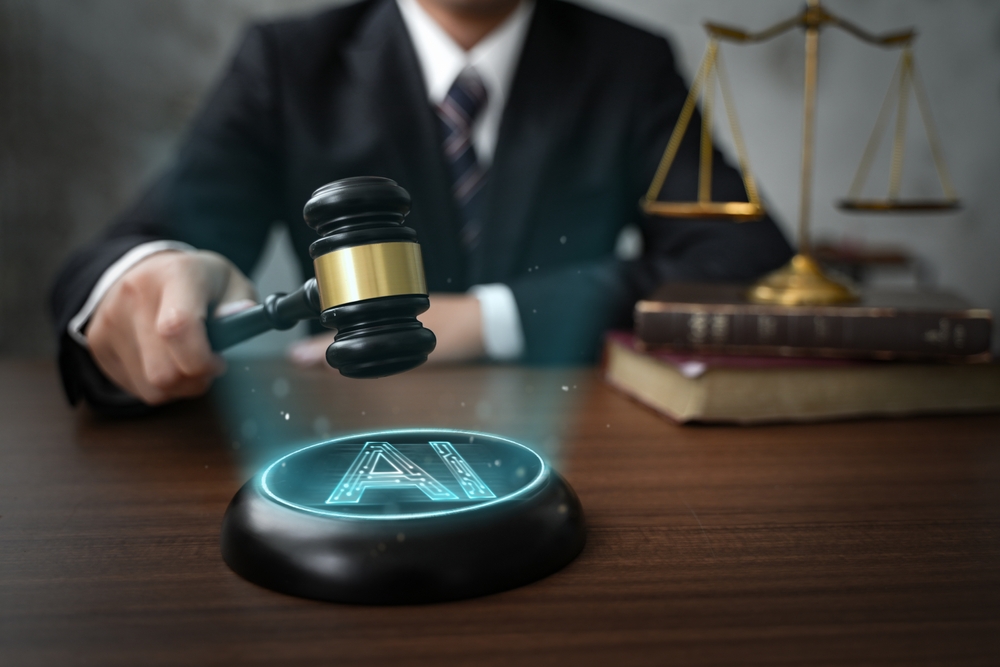The Florida Bar Provides Guidance on Lawyers’ Use of Artificial Intelligence
The Florida Bar Provides Guidance on Lawyers’ Use of Artificial Intelligence
“I fear that AI may replace humans altogether. If people design computer viruses, someone will design AI that improves and replicates itself. This will be a new form of life that outperforms humans,” warned Stephen Hawking during an interview with WIRED magazine in 2014 (The Economic Times, March 14, 2018).
The Florida Bar’s Board Review Committee on Professional Ethics recently issued Florida Ethics Opinion 24-1 (Opinion 24-1) to provide guidance to members of The Florida Bar on the ethical use of artificial intelligence (AI) in the practice of law. Opinion 24-1 focuses on AI’s impact on four specific areas: Confidentiality, Oversight of Generative AI, Legal Fees and Costs, and Lawyer Advertising.
The opinion is advisory only. In other words, the opinion is “not the basis for action by grievance committees, referees, or the board of governors except on application of the respondent in disciplinary proceedings.” (Florida Bar Procedures on Ruling on Questions of Ethics, 1. Application; Score; and Usage).
Opinion 24-1 begins by recognizing that “generative AI may have the potential to dramatically improve the efficiency of a lawyer’s practice,” but it may also raise “a variety of ethical concerns.” For example, “AI can “hallucinate” or create “inaccurate answers that sound convincing,” with sometimes serious consequences. (See Mata v. Avianca, 22-cv-1461, 2023 WL 4114965, at 17 (S.D.N.Y. June 22, 2023).
Confidentiality
The Comment to Rule 4-1.6, Rules Reg. Fla. Bar (Rules), makes clear that a lawyer’s duty of confidentiality applies to all information learned during a client’s representation, regardless of its source. As such, Opinion 24-1 recommends “that a lawyer obtain the affected client’s informed consent prior to utilizing a third-party generative AI program if the utilization would involve the disclosure of any confidential information.” Under the Rules, “informed consent” means “agreement by a person to a proposed course of conduct after the lawyer has communicated adequate information and explanation about the material risks of and reasonably available alternatives to the proposed course of conduct.” Rules of Professional Conduct Preamble, Terminology.
A lawyer using AI must “make reasonable efforts to prevent the inadvertent or unauthorized disclosure of, or unauthorized access to, information relating to the client’s representation.” Rule 4-1.6(e), Rules. A lawyer using AI must provide competent representation. This includes “an understanding of the benefits and risks associated with the use of technology[.]” Rule 4-1.1, Comment.
Opinion 24-1 points out how AI may be “self-learning,” meaning, that it “continues to develop its responses as it receives additional inputs and adds those inputs to its existing parameters.” This then raises the specter “that a client’s information may be stored within the program and revealed in response to future inquiries by third parties.”
In reliance on prior Florida Ethics Opinions dealing with cloud computing, electronic storage disposal, remote paralegal services, and metadata, Opinion 24-1 directs lawyers specifically to:
- Ensure that the AI provider has an obligation to preserve the confidentiality and security of information, that the obligation is enforceable, and that the provider will notify the lawyer in the event of a breach or service of process requiring the production of client information;
- Investigate the provider’s reputation, security measures, and policies, including any limitations on the provider’s liability; and
- Determine whether the provider retains information submitted by the lawyer before and after the discontinuation of services or asserts proprietary rights to the information.
Oversight of Generative AI
In a somewhat ironic twist on Stephen Hawking’s concerns, Opinion 24-1 applies the rules applicable to a lawyer’s supervision of a human nonlawyer assistant to generative AI. The opinion instructs lawyers to ensure “that the conduct of [generative AI] is compatible with the lawyer’s own professional obligations.” The “lawyer must review the work product of a generative AI in situations similar to those requiring review of the work of nonlawyer assistants such as paralegals.”
A lawyer’s duty to supervise applies to nonlawyers “both within and outside of the law firm.” ABA Comm. on Ethics and Professional Responsibility, Formal Op. 498 (2021); see Fla. Ethics Op. 07-2. Thus, a lawyer must “ensure that its actions are consistent with the lawyer’s own professional and ethical obligations.” Finally, lawyers using generative AI “may not delegate to generative AI any act that could constitute the practice of law such as the negotiation of claims or any other function that requires a lawyer’s personal judgment and participation.” As Opinion 24-1 emphasizes, this is especially applicable to law firms which “utilize website chatbots for client intake.”
Legal Fees and Costs
Opinion 24-1 provides these specific takeaways in regard to AI’s impact on legal fees and costs:
- Though generative AI programs may make a lawyer’s work more efficient, this increase in efficiency must not result in falsely inflated claims of time.
- A lawyer must inform a client, preferably in writing, of the lawyer’s intent to charge a client the actual cost of using generative AI. In all instances, the lawyer must ensure that the charges are reasonable and are not duplicative.
Lawyer Advertising
Rule 4-7.13, Rules, prohibits “advertising that is deceptive or inherently misleading.” To this end, Opinion 24-1 warns lawyers to “be careful when using generative AI chatbot for advertising and intake purposes as the lawyer will be ultimately responsible in the event the chatbot provides misleading information to prospective clients or communicates in a manner that is inappropriately intrusive or coercive.” One requirement is that the “lawyer must inform prospective clients that they are communicating with an AI program and not with a lawyer or law firm employee.”
As the famous line from the 1960’s comic strip, “Pogo” famously said, “We have met the enemy and he is us.” Will AI turn out to be the enemy? Only time will tell.










